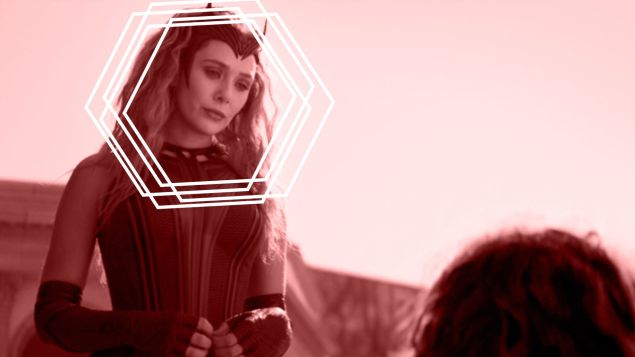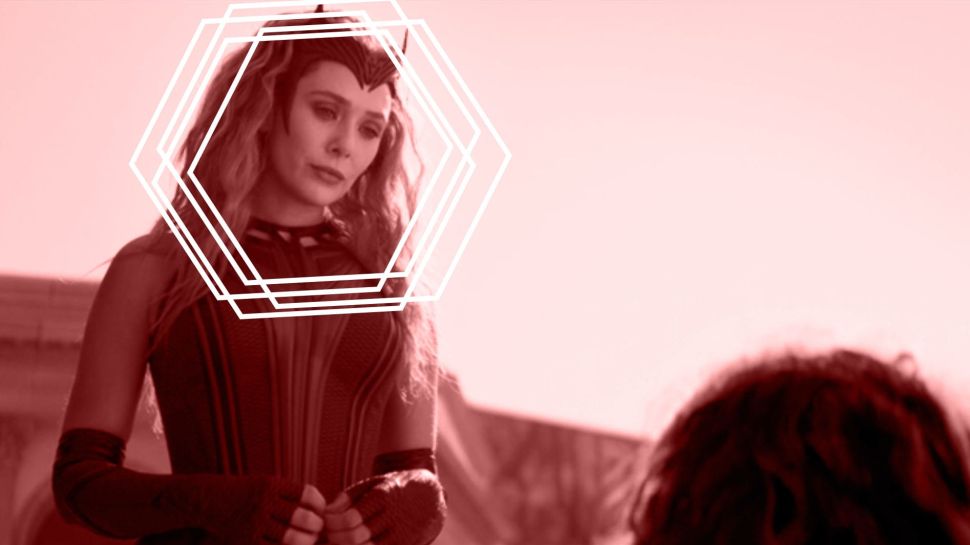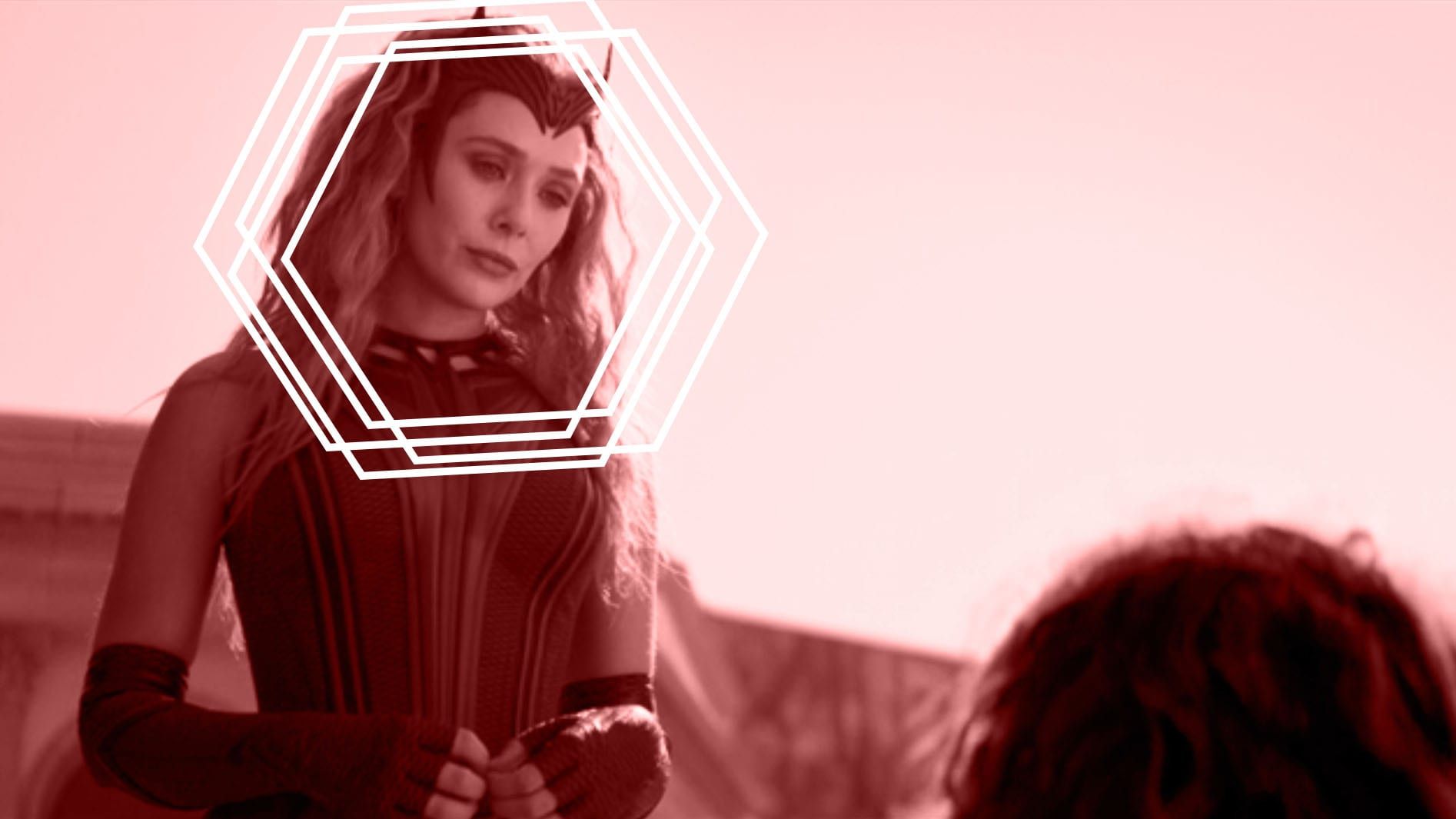
Wanda (Elizabeth Olsen) in “The Series Finale†of WandaVision. Disney illustration: Observer
“That accent actually comes and goes, doesn’t it?†the evil witch Agnes Harkness (Kathryn Hahn) sneers at Wanda Maximoff in 1 of the afterwards episodes of Marvel’s strike collection Wandavision. The display has typically been talked over as an investigation of grief and reduction. But, as Agnes indicates, it’s also, at the very least waveringly, about immigration, assimilation and an American suburban sitcom aspiration which may or may well not be a nightmare.
As you’re most likely aware except you have been hiding in some magically sealed off alternate fact, WandaVision is structured in the beginning as a sitcom pastiche. The to start with couple episodes demonstrate Wanda (Elizabeth Olsen), a witch, and her husband the sentient android Vision (Paul Bettany) living a preternaturally healthful lifetime in the suburbs, total with chuckle-track. There are copious references to television chestnuts earlier, from I Desire of Jeanie in early episodes to Family Ties and Malcolm in the Middle later on on.
Sooner or later we master that the sitcom backdrop is all a spell produced by Wanda as a response to her grief. In MCU films over the yrs, Wanda’s beloved brother Pietro and then her lover the Vision equally died. Wanda’s like of previous American tv is defined in the penultimate episode via a flashback. Expanding up in a war torn Jap European place, her loved ones would enjoy sitcoms to bond and master English. In a maybe far too-on-the-nose twist, we see her property truly blown up and her mother and father killed even though the loved ones was watching an episode of The Dick Van Dyke Demonstrate.
Westview, then, is essentially an immigrant’s eyesight of an idyllic The us, the place the streets are paved, not with gold, but with fantastic lawns and nuclear family members. Wanda’s Westview—a perform on the names of Wanda and Vision but also “TVâ€â€”is friendly, thoroughly clean, and full of neighborly cheer. On a lousy working day, your spouse could get gum caught in his clockwork inner mechanisms and expend a couple of hrs acting incredibly drunk. That is as terrible as points get.
The show’s anxieties about assimilation are out in the open. But they’re also garbled.
Scrubbed normality and perfection have an artificial uncanny valley eeriness, and Wanda’s Westview utopia is ominous in component specifically for the reason that it is so utopian. Wanda and Vision, witch and robot, adhere out amidst all the aggressive mundanity. They have to consistently be vigilant to make confident no just one sees Wanda making use of magic or catches Vision with his purely natural purple encounter ahead of he can convert it flesh-toned. Their machinations to conceal their dissimilarities operate a slender thread of stress and anxiety as a result of the typical contentment of the early episodes. It is a reminder that element of how you get normality is by forcing anyone who’s various into hiding.
Possibly the most pointed variation on this theme is in the period finale. A quasi-military group called SWORD is making an attempt to totally free Westview from Wanda’s spell they send a reanimated Eyesight to demolish her. This Eyesight is, notably, entirely bleached of coloration, and has shed all memory of his earlier. America has severed him from his roots and person record, as America at times attempts to sever immigrants from theirs, and he has turn into a white drone, doing the harmful bidding of his programmers.
The show’s worries about assimilation are out in the open up. But they’re also garbled. Many thanks in part to choices by now made in the Marvel Cinematic Universe, Wanda has been carefully distanced from distinct, authentic-environment ethnic id. In her comedian-reserve incarnations, Wanda is normally Jewish, or Roma, or the two. In the exhibit, she as a substitute hails from the fictional nation of Sokovia. Nevertheless, the Roma track record peaks by way of at odd, unlucky times. In a Halloween episode, Wanda dons a “Sokovian fortune teller†outfit for Halloween—a joke that hinges on stereotypes about Roma fortune tellers. WandaVision would like to critique the way outside the house pressures vanish quietly into sitcoms. But then it reproduces those people same pressures by both equally erasing and stereotyping the ethnic identity of its protagonist.
Even a lot more confusingly, the worst example of enforced conformity in the exhibit is not about Us citizens forcing outsiders to be extra like them. It’s Wanda demanding that Us residents be additional like she would like them to be. Around the system of the sequence, we study that the other inhabitants of Westview are not just figments of Wanda’s imagination. They are actual citizens of the city, who have been head-managed by Wanda to follow her sit-com scripts. As an alternative of checking on ill family members, or paying time with their small children, the inadequate persons in Wanda’s spell are forced to spend their life dreaming Wanda’s goals of grief, waking only to provide stale straight traces.
Wanda is not in handle of her powers and does not accurately realize what she’s executing. But nevertheless, this narrative evokes anticommunist Chilly War paranoid SF tales like Invasion of the Overall body Snatchers, or Heinlein’s The Puppet Masters, in which alien hive minds impose their dreaded, drab sameness on American individualism. “There will usually be torches and pitchforks for ladies like us Wanda,†Agatha claims. This evokes the witch hunts in Salem, in which the townspeople hunted down and murdered people deemed outsiders. But the twist in this article is that Agatha and Wanda are essentially both witches who do evil points. The story is not about how marginalized people are persecuted, but about how marginalized folks are someway the most strong people today on earth and bend the great upstanding non-witches to their will.
In “The Series Finale,†Wanda’s Vision and her two twin boys, who actually are purely her creations, have to be wrecked so that the relaxation of the town can get back their minds. Wanda concurrently stops being a suburban mom and in its place will become the Scarlet Witch—which suggests she gets her accent back, her eyes glow, and she is magically garbed in tight pink fetishware. We change genres from sit-com to fantasy horror Wanda is released from heteronormative sit-com quotidian program and allowed to be her legitimate goth self. That’s not figured as a triumph, while. It is offered as decline.
Wanda at instances wishes to be a normal American suburbanite, regardless of what that is. And then at other instances she desires to be correct to a much more particular self, what ever that might be—Jew, Roma, woman, strange old witch. The display is torn by a comparable uncertainty. Its early, stylized, David Lynchian episodes give way to a a lot more and far more standard Marvel narrative, with crossover cameos, super-battles and personal discoveries laid out in plainly marked narrative beats.
In the end, WandaVision did not precisely know what it was. That accent will come and goes, potentially mainly because Wanda is unsure which voice she wishes to be hers.

